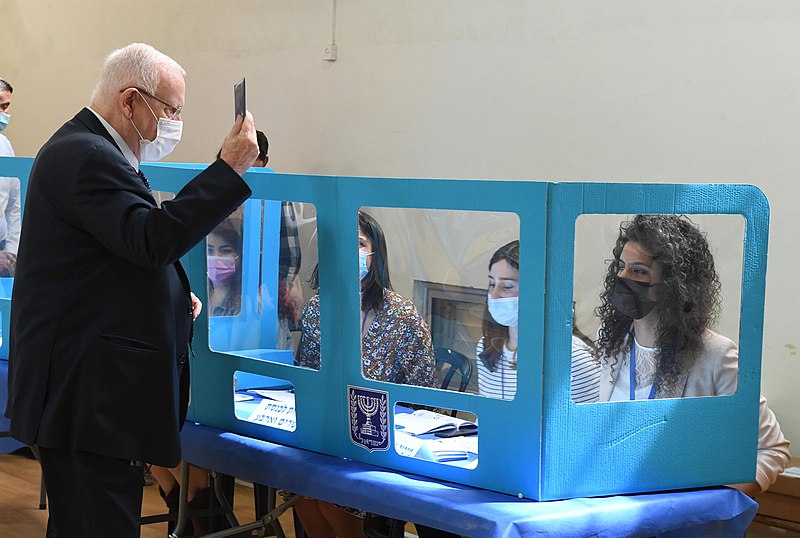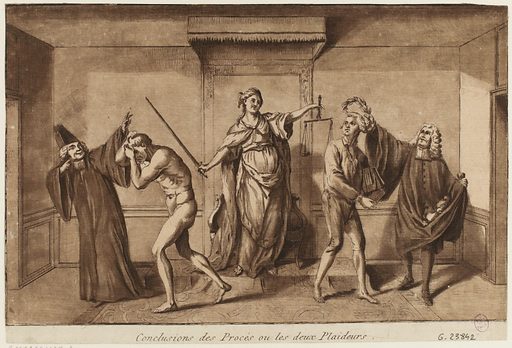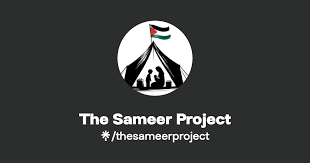On March 23, Israel’s citizens elected a new Knesset, the fourth such election in just two years. The most painful issue under Israel’s control— the fate of Palestinians deprived of their most basic human and national rights— was not even discussed in the campaign. Millions of Palestinians in the West Bank and Gaza Strip, which has been under Israel’s military rule for the last 54 years, don’t have the vote. For many Israelis, their fate is a “non-issue.”
In fact, the Israeli media constantly attacks Arab Palestinian Knesset members for caring too much about the fate of their voteless brothers and sisters. Because they continually advocate for the disenfranchised, the media accuses them of being responsible for the continued systematic discrimination against Palestinians in the areas occupied by Israel since 1948 who do have the vote and formal Israeli citizenship.
Open racist wounds
Though the Palestinian issue was not discussed, it is still the invisible force that played havoc with Israeli politics and caused the unprecedented anomaly of four subsequent elections. The central issue of contention, as everybody knows, is the fate of Binyamin Netanyahu (AKA “BiBi”), Israel’s longest serving prime minister, who is standing trial for multiple cases of corruption.
In previous elections, Bibi succeeded to distract Zionist public opinion from his corruption by inciting against the “danger” of Arab voters. In the last round, in March 2, 2020, the anti-Bibi forces united around General Gantz, the “hero” who, as Israel’s chief of staff, commanded over the massacre of thousands of Palestinians in Gaza in 2014. They thought that the general’s war credentials would protect them from Bibi’s description of his opponents as “leftists” and “weak on the Palestinians.”
The Arab parties also united in those 2020 Knesset elections and brought unprecedented representation of 15 seats, raising the traditionally low voting percentage between disillusioned Arab Palestinian voters by promising that with their unity they could gain real influence in Israeli politics.
In an attempt to materialize the promised influence, they joined the Zionist opposition in recommending Gantz for the post of prime-minister. That caused panic in the Gantz camp, as the “hero” himself and many of his supporters preferred to join a government led by Bibi, the same person they promised never to support, rather than form a government supported by Arab parties.
Finally, it was Bibi himself who caused the collapse of his own coalition government, trying to utilize his success in rolling out anti-Corona vaccines before any other country, in order to form a government of true believers that would, hopefully, abolish his corruption trials.
Bibi’s true believers, in addition to Likud enthusiasts, are mostly religious nationalists.
The two Haredi (Religious Orthodox) parties, one for Jews of European descent and one for Jews from the Arab countries, are hooked on monetary transfers from the state, and adopted extreme anti-Arab positions just as they skillfully defend the right of their youth not to serve in the army.
In addition, Bibi personally worked hard to unite all sorts of “national religious” elements to a single election list named “Religious Zionism,” which includes the most extreme far-right “Jewish Power” (Otzma Yehudit) party, the new home of the followers of Kahana after their original party was declared a terrorist organization. Likud, at Bibi’s insistence, even gave a slot in his own list to a member of “Religious Zionism” in order to make sure that Itamar Ben-Gvir from “Otzma” will be in the Knesset.
Political Chaos
The collapse of the anti-Bibi camp after the last election and the crawl to join his government, followed by Bibi’s reversal of all his promises, left the “camp” in disarray. There are hardly any real parties, as candidates’ lists change in each election like the colored plastic in a kaleidoscope. Most lists are popularly, or even officially, called by the name of their current leader. In many such lists, “the leader” personally positions his servile followers in the rest of the slots.
The media often describes Bibi as a magician, in an attempt to explain his prolonged control over Israeli politics. A much more honest explanation is the total impotence of the opposition. He was exposed in an endless array of small and big corruption cases, from begging for cigars and champagne from friendly tycoons, through taking his family’s dirty laundry (literally) on visits to the white house to be washed for free at the expense of USA hospitality, to big bribes paid by German submarine producers to his close aides for their effort to sell the Israeli army expensive hardware it doesn’t need.
The value of his political shares inflated as his admirer Donald Trump was elected for the job of US president, but his staunch support for Trump undermined the bi-partisan support for Israel in the US and damaged Israel’s relations with its Jewish community. Meanwhile he filled his Likud party with noisy henchmen and continued to lose the party’s “more serious” politicians, the latest of them, Gideon Sa’ar, led another Anti-Bibi list composed of ex-Likudniks, which prevented the pro-Bibi camp from gaining outright majority in this election.
The general political chaos didn’t spare the Arab “Joint List.” In its unanimous recommendation for Gantz, it crossed all the red lines of Palestinian solidarity without showing any tangible achievement for its voters. This led one component of the Joint List to try to go one step farther.
MK Mansour Abbas, the leader of the Islamic Movement’s “Southern” faction, started engaging in a series of courtship steps with Bibi himself, explaining that he is ready to cooperate with any side that can deliver real advantage to his voters. (The “Northern” faction of the Islamic Movement, where most of the mass movement is, was outlawed by Israel and its leaders were thrown into jail.)
This division led to a split in the Joint List. Abbas is now leading “The United List” with his Islamic Movement and some more traditional local leaders. As I write these lines, according to the current (not final) election results, Abbas and his list are considered “the wild card” between the pro-Bibi and anti-Bibi camps. But as Israeli politics go, racism is the most prevalent common denominator, and it is unlikely that either camp will be ready to build a government based on Arab parties.
Thus, by the delegitimization of the Arab Palestinian voters, the two Zionist camps would find it hard to command the “Jewish majority” that they aspire to for building a “legitimate” Zionist government. Many commentators assume that the most likely result of the election would be yet another election sometime soon.
The Case for Boycott
It was symbolic that at the time of the Knesset election campaign, Palestinians in the West Bank and Gaza were preparing to vote for the “Legislative Council” of the Palestinian Authority. The ethno-geography of the elections clearly explains the failure of the Palestinians to gain their rights on both stages.
All Jews, everywhere in Palestine, from the river to the sea, are privileged citizens of the state of Israel and take part in deciding not only their own fate but also the fate of the Palestinians. Meanwhile, Palestinians are divided. Palestinians in the West Bank and Gaza vote for the PA, which has no real control under the occupation. Any Palestinian, including elected MPs, that engage in political activity that is regarded “hostile” by the occupation, is arrested by Israel.
Palestinians in the areas that were occupied in 1948 are formally citizens, but they are subject to systemic discrimination, including land confiscation and house demolition that amount to ethnic cleansing. Palestinian MKs have no real influence, and they are subject to constant demonization in the Israeli media. On the other side, the Israeli propaganda machine uses the presence of Palestinian MKs in the Knesset as a “proof” of the false claim that Israel is a proper democracy.
The majority of the Palestinian population was expelled from their homes, villages and cities in 1948 and in the 73 years that lapsed since. Actually, their expulsion was the essential condition for creating the “Jewish Majority” in 1948. Thus, the claim that Israel is a “democratic state” is based on the endorsement of ethnic cleansing. No wonder that this “Jewish Majority” is voting again and again to deny the right of return of millions of Palestinians.
Over the last decades, especially since the Oslo agreement, Israel and its Western and Arab supporters succeeded not only to divide the Palestinian people physically but also to divide them politically. Each part of the Palestinian people is directed to look for his special rights within some special enclave. In each part there is a local leadership that adjusted to these conditions and grew to benefit from them.
Over the last years, we have witnessed the development of new Palestinian protest movements, mostly among the younger generation. Many of them call for boycott of the Knesset elections as well as the elections of the Palestinian Authority. They aspire for the rebuilding of a united Palestinian movement, in all parts of Palestine and throughout the diaspora, as the first step toward liberation and the establishment of real democracy in a free, united Palestine.




